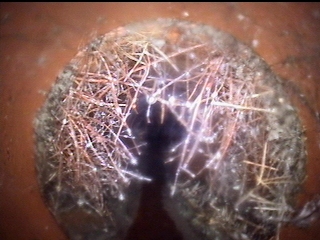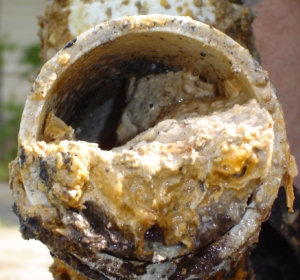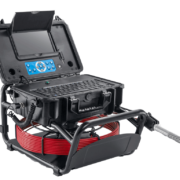What Causes Sewer Blockages?
What Causes Sewer Blockages?
Some of the most common causes of sewer blockage are:
- Build-up of grease, debris or foreign objects in the sewer lateral or city sewer main.
- Partial or complete blockage caused by tree root intrusion into sewer pipes.
- Sewer line collapse caused by old and deteriorated sewer pipes.
- Debris entering the sewer system from illegal pipe connections.
Here are a few tips that will help protect against blockages:
Sewer mainline blockages are more common than most people think. Helping reduce blockages can reduce the cost to fix the problem, and reduce your overall maintenance expenditures.
Roots: Don’t plant trees or large shrubs near sewer lines. Roots grow toward breaks and cracks in the pipes in search of a source. If roots get inside the pipe, they form root balls that clog the line. Products are available that chemically treat roots which have found their way into pipes.

Roots in Sewer Line
Grease: Dispose of grease and fats with your trash – don’t put them down the drain! Grease collects and hardens inside the pipes and forms a plug.

Grease is Sewer Line
Deteriorated pipes: Some homes may have damaged or deteriorated pipes. Before considering upgrades or replacement, you may want to contact a plumber to discuss which options are appropriate for your situation.
Illegal plumbing connections: Don’t connect backyard drains, sump pumps and other drainage systems to the sanitary sewer. It’s illegal and debris and silt will clog your line. Consult a plumber to disconnect illegal connections.
Curious to know what causes sewer blockages? If you’re ready to schedule your sewer scope inspection in Orange County, simply contact Signature Home Inspection at (888) 860-2688 or submit the convenient form on our website.




Thanks for sharing. If your main sewer line is blocked, you’ll start noticing that water will backup in random places. For example, when you flush the toilet, water will suddenly appear in your bathtub or shower. Alternatively, if you run your washing machine, your sink might start to overflow.
Regards,
Kurt
It’s definitely something you do not want to experience?